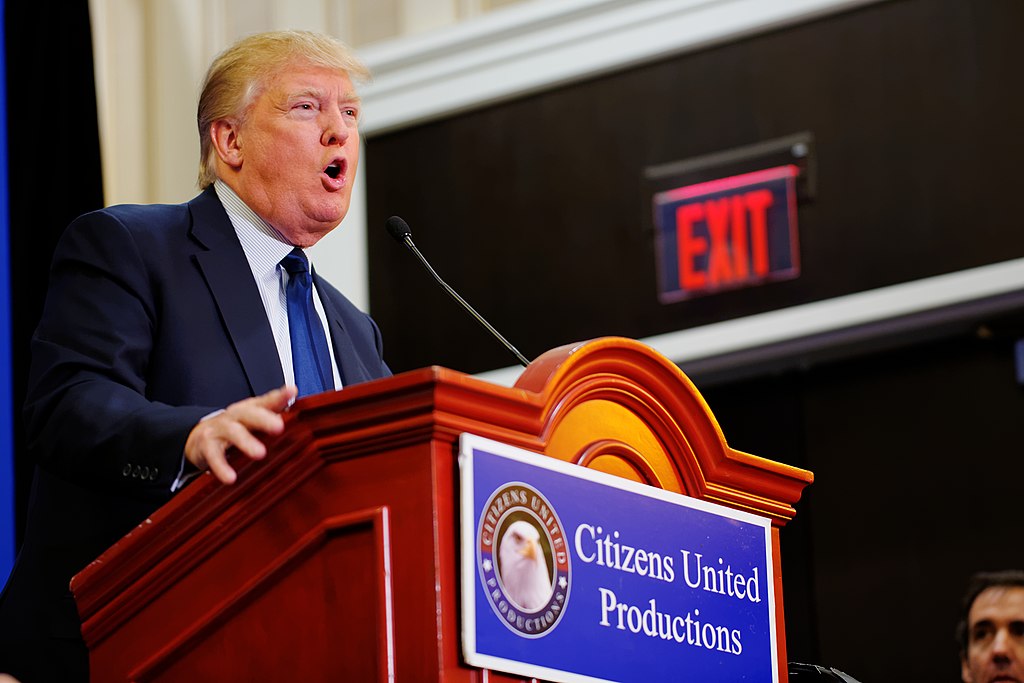Donald Trump has ramped up his rhetoric on election integrity, vowing that if he wins the 2024 presidential race, he will impose long-term prison sentences on individuals caught engaging in election fraud. The former president's latest promise underscores his ongoing claims that the electoral process in the United States has been compromised, and it reflects his broader strategy of making election security a central focus of his campaign.
Speaking to supporters at a recent rally, Trump emphasized that safeguarding the 2024 election from fraud and interference would be a top priority in a second term. His pledge to introduce harsh penalties, including extended prison sentences for anyone found guilty of cheating, is designed to appeal to a base that has been highly vocal about concerns over election transparency and voter fraud since the 2020 election.
While Trump continues to assert that widespread fraud occurred in 2020—a claim widely debunked by multiple audits, recounts, and legal challenges—his focus on election security has remained a potent rallying point for his supporters. This latest vow reflects his determination to address these concerns head-on by proposing severe punishments for those involved in tampering with the electoral process.
Legal experts have raised questions about the feasibility and potential implications of such a move. While election fraud is already a federal crime, punishable by fines or imprisonment, Trump's call for even harsher sentencing represents an escalation in his approach to combating what he describes as a threat to democracy. Critics argue that introducing stiffer penalties may risk politicizing the issue further, potentially undermining public trust in the fairness of elections.
Nonetheless, Trump’s hardline stance on election security resonates strongly with his base, many of whom remain deeply skeptical of the electoral process. By promising long-term prison sentences for those caught cheating, Trump is positioning himself as the candidate who will restore faith in elections and protect the integrity of the voting system.
Election experts, however, point out that incidents of voter fraud in U.S. elections are exceedingly rare, a point backed by numerous studies and investigations. Despite these findings, Trump’s claims about the 2020 election have continued to influence the political landscape, with many Republican lawmakers adopting stricter voting laws and regulations in states across the country.
Trump’s pledge to impose tougher penalties for election fraud also raises questions about how such laws would be enforced and who would be tasked with determining what constitutes “cheating” in an election. Given the heightened polarization surrounding the issue, some worry that these measures could be used to target political opponents or suppress voter participation.
As the 2024 campaign intensifies, Trump's focus on election integrity is expected to remain a central theme of his platform. His promise to hold accountable anyone who attempts to manipulate the vote plays directly into the fears of a significant portion of his base, while also setting the stage for what could be a highly contentious election cycle.



 Dominican Republic Unveils Massive Rare Earth Deposits to Boost High-Tech and Energy Sectors
Dominican Republic Unveils Massive Rare Earth Deposits to Boost High-Tech and Energy Sectors  Trump Warns Iran as Gulf Conflict Disrupts Oil Markets and Global Trade
Trump Warns Iran as Gulf Conflict Disrupts Oil Markets and Global Trade  Trump to Address Nation as U.S. Launches Strikes in Iran, Axios Reports
Trump to Address Nation as U.S. Launches Strikes in Iran, Axios Reports  Melania Trump to Chair UN Security Council Meeting as U.S. Assumes Presidency
Melania Trump to Chair UN Security Council Meeting as U.S. Assumes Presidency  USITC to Review Impact of Revoking China’s PNTR Status, Potentially Raising Tariffs on Chinese Imports
USITC to Review Impact of Revoking China’s PNTR Status, Potentially Raising Tariffs on Chinese Imports  Iran Supreme Leader Ayatollah Ali Khamenei Killed in Israeli, U.S. Strikes: Reuters
Iran Supreme Leader Ayatollah Ali Khamenei Killed in Israeli, U.S. Strikes: Reuters  Pentagon Leaders Monitor U.S. Iran Operation from Mar-a-Lago
Pentagon Leaders Monitor U.S. Iran Operation from Mar-a-Lago  Israel Declares State of Emergency as Iran Launches Missile Attacks
Israel Declares State of Emergency as Iran Launches Missile Attacks  Philippines, U.S., and Japan Conduct Joint Naval Drills in South China Sea to Boost Maritime Security
Philippines, U.S., and Japan Conduct Joint Naval Drills in South China Sea to Boost Maritime Security  Pentagon to Halt Ivy League Programs for U.S. Military Officers Starting 2026
Pentagon to Halt Ivy League Programs for U.S. Military Officers Starting 2026  Trump Floats Ted Cruz for Future U.S. Supreme Court Nomination
Trump Floats Ted Cruz for Future U.S. Supreme Court Nomination  Netanyahu Suggests Iran’s Supreme Leader Khamenei May Have Been Killed in Israeli-U.S. Strikes
Netanyahu Suggests Iran’s Supreme Leader Khamenei May Have Been Killed in Israeli-U.S. Strikes  U.S.-Iran Nuclear Talks Show Progress but No Breakthrough Amid Rising Military Tensions
U.S.-Iran Nuclear Talks Show Progress but No Breakthrough Amid Rising Military Tensions  ICE Hiring Surge Raises Vetting Concerns Amid Rapid Expansion
ICE Hiring Surge Raises Vetting Concerns Amid Rapid Expansion  U.S.-Israel Strike on Iran Escalates Middle East Conflict, Trump Claims Khamenei Killed
U.S.-Israel Strike on Iran Escalates Middle East Conflict, Trump Claims Khamenei Killed  Trump Launches Operation Epic Fury: U.S. Strikes on Iran Mark High-Risk Shift in Middle East
Trump Launches Operation Epic Fury: U.S. Strikes on Iran Mark High-Risk Shift in Middle East  Russia Signals Openness to U.S. Security Guarantees for Ukraine at Geneva Peace Talks
Russia Signals Openness to U.S. Security Guarantees for Ukraine at Geneva Peace Talks 































